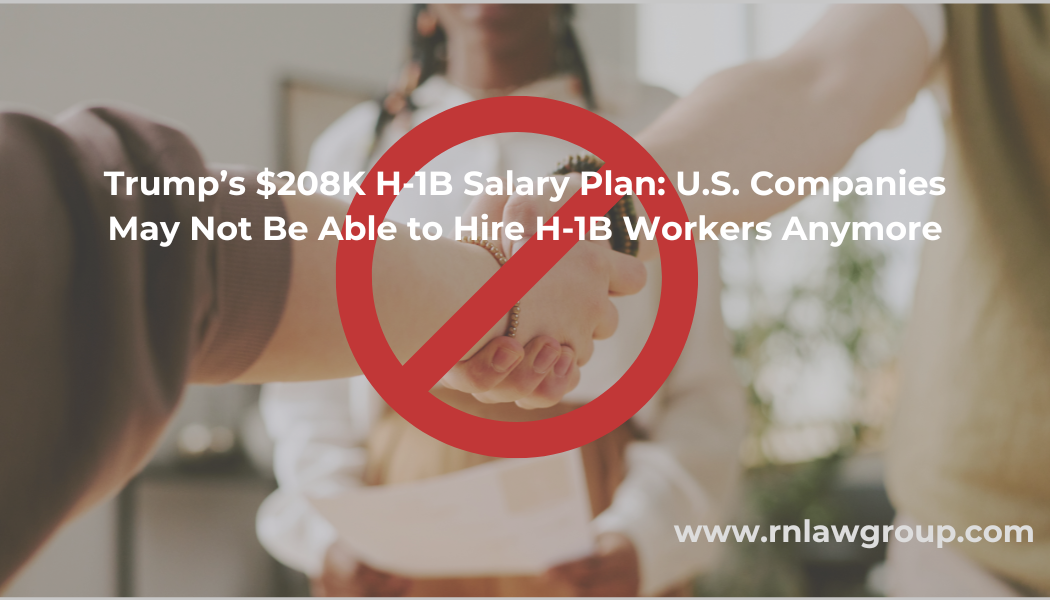
Trump’s $208K H-1B Salary Plan: U.S. Companies May Not Be Able to Hire H-1B Workers Anymore
Donald Trump’s latest immigration proposal signals a renewed attempt to restrict high-skilled immigration by making it nearly impossible for U.S. employers to hire foreign professionals. While not yet a formal rule, the plan seeks to raise the minimum required salary for H-1B and employment-based green card workers to around $208,000 per year—a figure that would effectively shut most American companies out of the H-1B hiring process.
What the Proposal Means
Under existing law, employers must pay H-1B workers either the actual wage paid to similar U.S. employees or the Department of Labor’s prevailing wage for that job and location—whichever is higher. This prevailing wage system has four levels reflecting experience and responsibility.
Trump’s plan would inflate these wage levels drastically, pushing even entry-level positions to senior-level salary ranges. For instance, a fresh graduate working as a software developer could legally require a salary of $208,000 per year, whether in San Francisco, Austin, or even smaller cities like Omaha or Raleigh.
Why It’s Problematic
Supporters claim the proposal protects American jobs, but evidence shows H-1B professionals already earn equal or higher wages than their U.S. counterparts with similar skills. By raising the wage floors this sharply, employers would not be encouraged to hire Americans—they would simply stop hiring altogether or move work overseas. This could especially hurt startups and midsize companies that rely on specialized global talent.
The tech industry, healthcare systems, and research institutions—all dependent on H-1B professionals—would likely face severe shortages, slowing innovation and productivity. Universities could also see fewer international students if future employment prospects appear out of reach.
The Bigger Picture
This proposal fits into a broader pattern of policies—such as the proposed $100,000 H-1B entry fee and restrictions on student visa durations—aimed at discouraging skilled immigration under the pretext of protecting U.S. jobs. In practice, these measures would weaken America’s innovation edge and push talent toward more welcoming countries like Canada and the U.K.
Conclusion
At this stage, the $208K H-1B salary plan is not yet a law or an active rule—it reflects what the Trump administration wants to implement. Whether it becomes reality depends on future regulatory steps, court challenges, and political decisions. Even if pursued, such a sweeping change could take months or years to move through the rulemaking process, and it may or may not survive legal and economic scrutiny. For now, it remains a proposal—but one with serious implications if ever put into effect.
By: Rahul Reddy
Rahul Reddy is the founding partner of Reddy Neumann Brown PC. He founded our firm in 1997 and has over 28 years of experience practicing employment-based immigration. Rahul‘s vast knowledge of the complex immigration system makes him an invaluable resource and an expert in the field. His personal experience with the immigration system has made him empathetic to each of his clients’ cases and empowered him to help others achieve the American Dream.
Rahul‘s dedication to serving the immigrant community is evident, from his daily free conference calls to his weekly immigration Q&As on Facebook and YouTube Live. He is an active member of the immigrant community and one of the founders of ITServe Alliance. He has been a member of American Immigration Lawyers Association since 1995.

